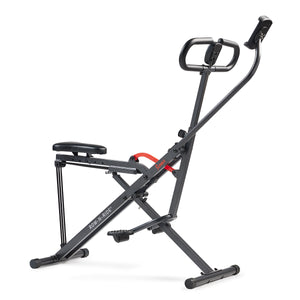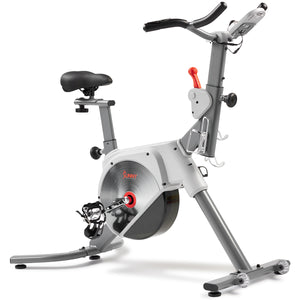There are so many reasons to love fall and winter: the holiday season, cozy meals, warm drinks, and spending time intentionally with family and friends. One reason not to love it? Cold and flu season.
But the good news is that there are steps you can take (quite literally) to boost your immune system strength. When it seems like everyone around you is getting sick, ward off the sniffles with exercise! In addition to getting plenty of sleep and eating nutrient dense foods, exercise is one of the best things you can do to help prevent illness. A regular exercise routine has been linked to lower levels of chronic inflammation and improves your chances of fighting off infection.(1)
Exercise Prescription for a Healthy Immune System
Science has confirmed that exercise has a positive effect on your immune system health, but exactly how much do you need to experience benefits?
How To Reap the Immune Health Benefits of Exercise
Moderate intensity exercise for 20-30 minutes, 5 times per week seems to do the trick.(2) This aligns with American Heart Association’s recommendation for optimizing heart health and reducing the incidences of other chronic diseases.(3) To find out if you are exercising at a “moderate” level, you can test yourself in a few different ways.
Track Your Heart Rate
If you have a device that allows you to track your heart rate, monitor yourself while you exercise. For moderate intensity, aim to hit 60-75% of your age-predicted HR max (220 – your age).
RPE Scale
RPE, or rating of perceived exertion, allows you to subjectively determine how hard your workout feels. On a scale of 1-10, you should feel like you are working at an intensity level of about 5 or 6.
Walk and Talk
When exercising at a moderate intensity, you should be slightly breathless but still able to hold a conversation with a friend. Try to avoid going completely breathless for these exercise bouts. High-Intensity Interval Training (HIIT) does have its merits, but for immune-boosting activity, keep your workouts on the lighter side (more on that below).
Strength Training and Your Immune System
Strength training has a major impact on you immune cell function. In fact, studies show that just one session of strength training can make short-term changes to your immunity, boosting your immune cell circulation and function.(4)
More importantly though, consistent strength training has positive long term effects on your immune system as well as effectively reducing inflammation levels.(5) So don’t miss out on 2-3 sessions of strength training per week to further power up your health!
Make Sure to Get Plenty of Rest
It is possible to have too much of a good thing. Exercising for longer bouts (1.5 hours or more) at moderate- to high-intensity can actually temporarily suppress your immune system.(6) If you engage in this type of exercise long term, it is extra important to prioritize rest.
This means if you are a marathon runner, triathlete, or simply love your HIIT workouts, rest should be a major priority. With this type of training, your body is subjected to high levels of stress, making extra recovery imperative to avoid negative effects on your immune system. Be sure to take plenty of rest days and get enough sleep nightly.
Should You Exercise if You are Sick?
Although exercise is great for your immune system, an instance where you should consider not exercising is when you are sick. Your body is working overtime to fight off infection, so you need all the R & R you can get.
That said, there may be cases where light to moderate exercise can be okay. If your symptoms are “above the neck” (think runny nose, mild headache, stuffiness) then it is generally fine to workout. It’s a good idea to back off your exercise intensity, but otherwise it is most likely safe to exercise.(7) A gentle walk or light mobility work might be just what the doctor ordered.
If you have symptoms “below the neck” (i.e. cough, chest congestion, or an upset stomach) it is best to skip your workouts until you feel better. Fully discontinue your exercise routine if you have a fever, and only return to exercise once your temps are back to normal.
As always, it is best to consult your doctor about proceeding to exercise if you are dealing with an illness or injury.
Exercise Is Medicine
Illness is a normal part of life, and sometimes coming down with a cold or flu is unavoidable. But why not give yourself the best shot at fighting it off by caring for your immune system all year around?
In essence, exercise is a method to strengthen your body and all it’s systems so that you can function optimally. It is a preventative measure to fight illness and injury, with the intention of eliminating the need for invasive or pharmaceutical intervention.
1. Chen, L., Deng, H., Cui, H., Fang, J., Zuo, Z., Deng, J., Li, Y., Wang, X., & Zhao, L. (2017). Inflammatory responses and inflammation-associated diseases in organs. Oncotarget, 9(6), 7204–7218. https://doi.org/10.18632/oncotarget.23208. Accessed 20 November 2023.
2. Kopecky, S. (n.d.). Understanding immune system health - mayo clinic. Mayo Clinic. https://www.mayoclinic.org/~/media/80569BAD2DF84A7394895F041D2726C5.pdf. Accessed 20 November 2023.
3. American Heart Association recommendations for physical activity in adults and kids. www.heart.org. (2022, July 28). https://www.heart.org/en/healthy-living/fitness/fitness-basics/aha-recs-for-physical-activity-in-adults. Accessed 20 November 2023.
4. Fortunato, A. K., Pontes, W. M., De Souza, D. M., Prazeres, J. S., Marcucci-Barbosa, L. S., Santos, J. M., Veira, É. L., Bearzoti, E., Pinto, K. M., Talvani, A., & Da Silva, A. N. (2018). Strength training session induces important changes on physiological, immunological, and inflammatory biomarkers. Journal of Immunology Research, 2018, 1–12. https://doi.org/10.1155/2018/9675216. Accessed 20 November 2023.
5. Salimans, L., Liberman, K., Njemini, R., Kortekaas Krohn, I., Gutermuth, J., & Bautmans, I. (2022). The effect of resistance exercise on the immune cell function in humans: A systematic review. Experimental Gerontology, 164, 111822. https://doi.org/10.1016/j.exger.2022.111822. Accessed 20 November 2023.
6. Effects of exercise on immune function. Gatorade Sports Science Institute. (n.d.). https://www.gssiweb.org/sports-science-exchange/article/sse-151-effects-of-exercise-on-immune-function#:~:text=Acute%20Prolonged%20Exercise%20Effects%20on%20Immune%20Function&text=Post%2Dexercise%20immune%20function%20depression,intake%20(Gleeson%2C%202013). Accessed 20 November 2023.
7. Is it OK to exercise when you’re sick? www.heart.org. (2021, January 13). https://www.heart.org/en/news/2021/01/13/is-it-ok-to-exercise-when-youre-sick. Accessed 20 November 2023.
























Add Your Name & Email
Please enter your name and email to continue.We won’t display your email publicly.